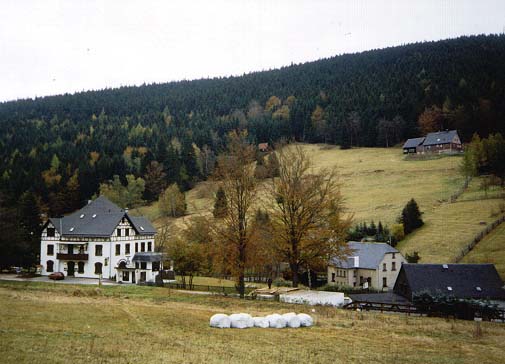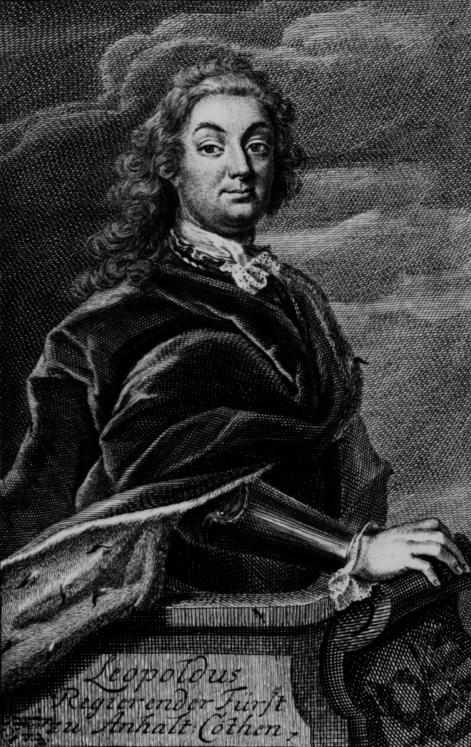|
Wolfgang Unger
Wolfgang Unger (31 December 1948 – 19 April 2004) was a German conductor, especially a choral conductor, and an academic in Halle and Leipzig. He founded several choirs and focused on the music of Johann Sebastian Bach and his contemporaries. Like Bach, he directed the music at the University of Leipzig, called Leipziger Universitätsmusik. Career Born in Eibenstock, Unger was educated at the Kreuzschule in Dresden. He was a member of the Kreuzchor under Rudolf Mauersberger, serving as ''Erster Chorpräfekt'' from 1965 to 1967. He studied conducting, including choral conducting, at the Musikhochschule Weimar. In 1969, he founded the choir , which he conducted until 1996. He was appointed Kapellmeister and choral conductor at the Philharmonisches Staatsorchester Halle. He was also director of the . He was awarded the town's Handel Prize in 1985. In 1987, Unger became artistic director of the Leipziger Universitätschor, and in 1991, of the University of Leipzig, where ... [...More Info...] [...Related Items...] OR: [Wikipedia] [Google] [Baidu] |
Eibenstock
Eibenstock is a town in the western Ore Mountains, in the Erzgebirgskreis, Saxony, Germany. It is situated near the river Mulde. Geography Eibenstock has the following constituent communities: Eibenstock, Blauenthal, Wolfsgrün, Neidhardtsthal, Wildenthal, Oberwildenthal, Carlsfeld, Blechhammer, Neues Wiesenhaus, Sosa, Stabhammer, Wilzschmühle and Weitersglashütte. History Middle Ages Owing to its elevation of more than 600 m, Eibenstock would not have been one of the first farming villages in the Ore Mountains, but rather a longstanding settlement in the form of a radial forest homestead village, founded at the earliest sometime in the thirteenth century in what later became the Barony of Schwarzenberg. About 1.5 km from the edge of town, not far from where the Steinbächel empties into the Große Bockau, a ringwall was unearthed. The first two documentary mentions as ''Ybenstok'' and ''Ibenstok'' both date from the year 1378. At that time, an ''Alte Seife ... [...More Info...] [...Related Items...] OR: [Wikipedia] [Google] [Baidu] |
Thomaskantor
(Cantor at St. Thomas) is the common name for the musical director of the , now an internationally known boys' choir founded in Leipzig in 1212. The official historic title of the Thomaskantor in Latin, ', describes the two functions of cantor and director. As the cantor, he prepared the choir for service in four Lutheran churches, Thomaskirche (St. Thomas), Nikolaikirche (St. Nicholas), Neue Kirche (New Church) and Peterskirche (St. Peter). As director, he organized music for city functions such as town council elections and homages. Functions related to the university took place at the Paulinerkirche. Johann Sebastian Bach was the most famous , from 1723 to 1750. Position Leipzig has had a university dating back to 1409, and is a commercial center, hosting a trade fair first mentioned in 1165. It has been mostly Lutheran since the Reformation. The position of Thomaskantor at Bach's time has been described as "one of the most respected and influential musical offices of P ... [...More Info...] [...Related Items...] OR: [Wikipedia] [Google] [Baidu] |
2004 Deaths
This is a list of deaths of notable people, organised by year. New deaths articles are added to their respective month (e.g., Deaths in ) and then linked here. 2022 2021 2020 2019 2018 2017 2016 2015 2014 2013 2012 2011 2010 2009 2008 2007 2006 2005 2004 2003 2002 2001 2000 1999 1998 1997 1996 1995 1994 1993 1992 1991 1990 1989 1988 1987 See also * Lists of deaths by day The following pages, corresponding to the Gregorian calendar, list the historical events, births, deaths, and holidays and observances of the specified day of the year: Footnotes See also * Leap year * List of calendars * List of non-standard ... * Deaths by year {{DEFAULTSORT:deaths by year ... [...More Info...] [...Related Items...] OR: [Wikipedia] [Google] [Baidu] |
1948 Births
Events January * January 1 ** The General Agreement on Tariffs and Trade (GATT) is inaugurated. ** The Constitution of New Jersey (later subject to amendment) goes into effect. ** The railways of Britain are nationalized, to form British Railways. * January 4 – Burma gains its independence from the United Kingdom, becoming an independent republic, named the ''Union of Burma'', with Sao Shwe Thaik as its first President, and U Nu its first Prime Minister. * January 5 ** Warner Brothers shows the first color newsreel (''Tournament of Roses Parade'' and the ''Rose Bowl Game''). ** The first Kinsey Reports, Kinsey Report, ''Sexual Behavior in the Human Male'', is published in the United States. * January 7 – Mantell UFO incident: Kentucky Air National Guard pilot Thomas Mantell crashes while in pursuit of an unidentified flying object. * January 12 – Mahatma Gandhi begins his fast-unto-death in Delhi, to stop communal violence during the Partition of India. * ... [...More Info...] [...Related Items...] OR: [Wikipedia] [Google] [Baidu] |
Totensonntag
Totensonntag (''Sunday of the Dead''), also called Ewigkeitssonntag (''Eternity Sunday'') or Totenfest, is a Protestant religious holiday in Germany and Switzerland, commemorating the faithfully departed. It falls the last Sunday of the liturgical year in the Evangelical Church in Germany and the Protestantse Kerk in The Netherlands. History With development of the liturgical year in the Middle Ages, readings on the last things were connected with the last Sundays of the liturgal year. While on the antepenultimate Sunday the focus is on death, the penultimate Sunday has the topic Last Judgment and the last Eternal Life. Traditionally, the last Sunday of the liturgical year deals in a special way with the expectation of Judgment Day. The Gospel is that of Parable of the Ten Virgins. In 1816, King Frederick William III of Prussia issued a decree that required all Lutheran churches in the areas under Prussian rule to observe the last Sunday before Advent as a "general celebratio ... [...More Info...] [...Related Items...] OR: [Wikipedia] [Google] [Baidu] |
Thomanerchor
The Thomanerchor (English: St. Thomas Choir of Leipzig) is a boys' choir in Leipzig, Germany. The choir was founded in 1212. The choir comprises about 90 boys from 9 to 18 years of age. The members, called ''Thomaner'', reside in a boarding school, the ''Thomasalumnat'' and attend the St. Thomas School, Leipzig, a Gymnasium school with a linguistic profile and a focus on musical education. The younger members attend the primary school ''Grundschule Forum Thomanum'' or ''Anna-Magdalena-Bach-Schule''. Johann Sebastian Bach served as Thomaskantor, director of the choir and church music in Leipzig, from 1723 to 1750. The choir Although the choir's main musical field traditionally consists of the vocal works of Johann Sebastian Bach, the repertoire comprises pieces from different eras, from the Renaissance to contemporary music. Andreas Reize is the 18th Thomaskantor since Bach. The Forum Thomanum is the campus of the choir in the Bach quarter of Leipzig. It was inaugurated in 20 ... [...More Info...] [...Related Items...] OR: [Wikipedia] [Google] [Baidu] |
Thomaskirche
, native_name_lang = , image = Leipzig Thomaskirche.jpg , imagelink = , imagealt = , caption = , pushpin map = , pushpin label position = , pushpin map alt = , pushpin mapsize = , relief = , map caption = , latd = , latm = , lats = , latNS = , longd = , longm = , longs = , longEW = , iso region = , osgraw = , osgridref = , location = , country = Germany , denomination = Lutheran , previous denomination = Catholic , churchmanship = , membership = , attendance = , website = , former name = , bull date = , founded date = , founder ... [...More Info...] [...Related Items...] OR: [Wikipedia] [Google] [Baidu] |
Hugo Distler
August Hugo Distler (24 June 1908 – 1 November 1942)Slonimsky & Kuhn, ''Baker's Biographical Dictionary of Musicians'', v. 2, p. 889 was a German organist, choral conductor, teacher and composer. Life and career Born in Nuremberg, Distler attended the Leipzig Conservatory from 1927 to 1931, first as a conducting student with piano as his secondary subject, but changing later, on the advice of his teacher, to composition and organ. He studied there with Martienssen (piano), Günther Ramin ( organ) and Grabner (harmony). He became the organist at St. Jacobi in Lübeck in 1931. In 1933 he married Waltraut Thienhaus. That same year he joined the NSDAP (National Socialist German Workers' Party), reluctantly, as his continued employment depended on his doing so. In October 1933 Distler was appointed head of the chamber music department at the Lübeck Conservatory, and at about the same time he began teaching at the Spandauer Kirchenmusikschule (Spandau school of church music).Klaus ... [...More Info...] [...Related Items...] OR: [Wikipedia] [Google] [Baidu] |
Die Freude Reget Sich, BWV 36b
''Die Freude reget sich'' (Joy awakens), BWV 36.3, BWV36b), is a secular cantata composed by Johann Sebastian Bach.Work at Bach Digital website The work appears to date from , when Bach was living in Leipzig. Bach drew on material he had composed more than a decade earlier for the cantata ''Schwingt freudig euch empor'', BWV 36.1.Work at Bach Digital website History and text Bach wrote several works for celebrations of the Leipzig University, ''Festmusiken zu Leipziger Universitätsfeiern''. The text pays homage to , who was appointed Rector of Leipzig University in October 1735. The cantata was probably performed in the university church, the Paulinerkirche. In 1727 Christian Friedrich Henrici (Picander) had published an earlier version of the text, the birthday cantata ''Steigt freudig in die Luft'', BWW 36a, which was also set by Bach. Picander was probably the author of the adaptation for the university celebration. Scoring and structure The cantata is scored fo ... [...More Info...] [...Related Items...] OR: [Wikipedia] [Google] [Baidu] |
Die Zeit, Die Tag Und Jahre Macht, BWV 134a
Johann Sebastian Bach composed the secular cantata (Time, which day and year doth make), BWV134.1, BWV134a, while he was in the service of the court of Leopold, Prince of Anhalt-Köthen. Bach wrote the work as a ''serenata'' for the celebration of New Year's Day 1719. The libretto by Christian Friedrich Hunold, an academic at the University of Halle, takes the form of a dialogue between two allegorical figures, ''Time'' and ''Divine Providence'', representing the past and future, respectively. Bach set the words in eight movements consisting of alternating recitatives and arias, culminating in a choral finale. Most movements are duets of solo voices, an alto as ''Divine Providence'' and a tenor as ''Time''. Even the closing movement features long duet passages, leading to parts for four voices. The singers are supported by a baroque instrumental ensemble of two oboes, two violins, viola and continuo. The character of the music is close to baroque opera, including French da ... [...More Info...] [...Related Items...] OR: [Wikipedia] [Google] [Baidu] |






